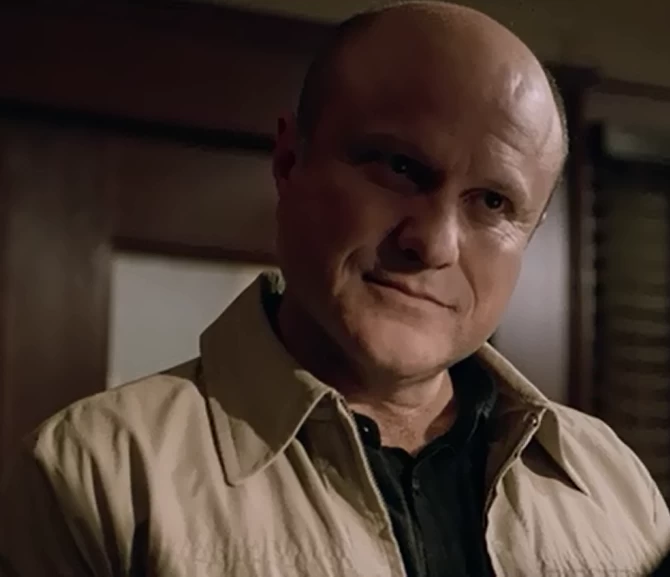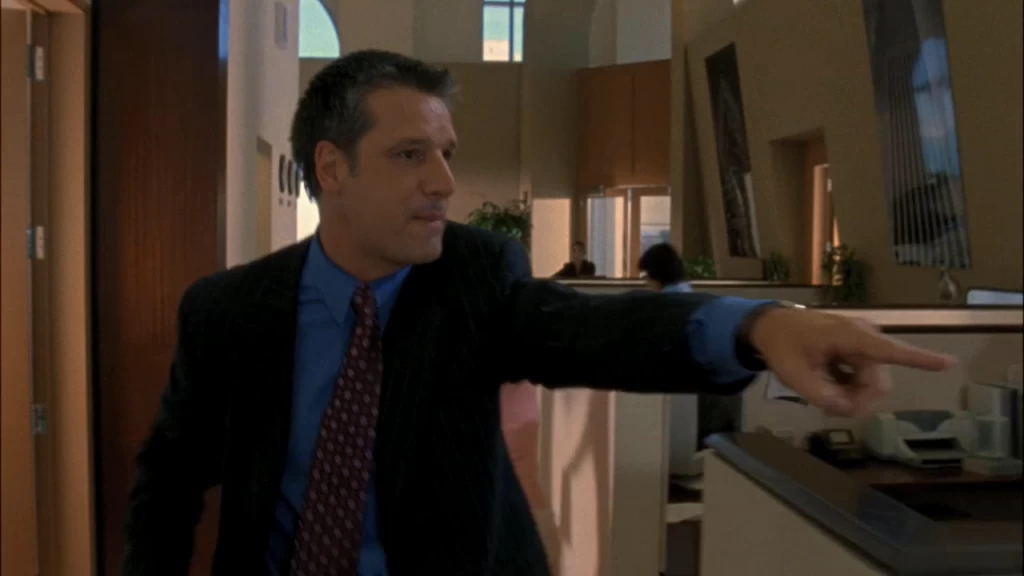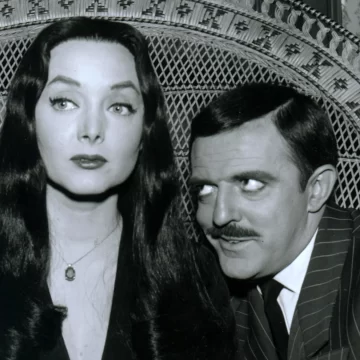If you’ve ever wanted to know anything about real estate investment trusts, or REITs, you should watch Veronica Mars sometime.
You should watch Veronica Mars regardless, in my humble opinion. If you’re part of Generation X, like I am, or a Baby Boomer or older, maybe it never became part of your TV viewing diet. Which is understandable. It wasn’t necessarily aimed at your generation, and it wasn't on TV for all that long – 2004 to 2007 – but then there was a TV movie, and a fourth season that aired in 2019 – so, in a way, it’s been around for quite awhile now.
My 17-year-old daughter, Lorelei, got me into Veronica Mars, and it makes sense that she gravitated toward it. The series is about a 17-year-old detective (at least, when the series premiered in 2004, it was). That may or may not sound appealing, but if you grew up reading The Hardy Boys or Nancy Drew, or watching The Hardy Boys/Nancy Drew Mysteries, think of Veronica Mars as an updated version.
It’s also a little like a dark version of Archie comics coming to life, and I don’t say that simply because of the title character being named Veronica. Or maybe even, at times, it's a spooky version of the Scooby Doo cartoon series. It feels like there are echoes of those popular culture icons in the show, and yet it's wholly original.

Anyway, Veronica Mars is a light, and yet slightly dark, extremely entertaining mystery series. There’s also a really strong father-daughter relationship in the show. Enrico Colantoni plays Veronica’s dad, Keith Mars. If you used to watch the sitcom Just Shoot Me! (1997-2003), you’ll remember Colantoni, who played Eliot DiMauro, a sort of (at times) sad sack and luckless photographer.

Colantoni was hilarious in Just Shoot Me!, and in Veronica Mars, well, he’s the sort of dad all middle aged dads wish they were. He’s suave, witty – and, to boot, a detective. I mean, c’mon.
And Kristen Bell, so memorable in The Good Place (2016-2020), plays Veronica Mars and is a wonder. She’s the teenage girl that I imagine all teenage girls aspire to be. She’s beautiful, brilliant, resourceful – and, again, a detective!
And I would love to have her time management skills. In fact, I thought about writing something for The TV Professor on time management tips that one can learn from Veronica Mars, and maybe I will someday, but honestly, she keeps her time management secrets pretty close to the vest. Somehow Veronica Mars manages to study and maintain an A average, have a boyfriend, work a part-time job (during the second season, she has a part-time job at a restaurant and at her father’s detective agency) and an active social life – and, apart from her dad’s detective agency, solve crimes. But how she does all of that successfully is, well, a mystery.
So what does Veronica Mars have to do with real estate investment trusts, or REITs? Ah, yes. Almost forgot that that's what prompted me to write about this show. Let’s get to that.
Today's "TV Lesson" Breakdown:
How Veronica Mars Explains an REIT
In the third episode of the second season, in an episode called, "Cheatty Cheatty Bang Bang," Veronica is at a Future Business Leaders of America extracurricular activity, after school, which is run by an economics teacher, Samuel Nelson Pope.
It’s one of those rare TV episodes where the characters and audience actually gets something of a school lecture.
Mr. Pope introduces Mr. H. Richard Casablancas, the CEO of Casablancas Enterprises, the father of one of the students.
And Mr. Casablancas begins his presentation. It may or may not sound like it in print, but he’s pretty engaging.
“Good afternoon. Uh, I'm here to talk to you kids about the real estate business. Now, uh, there's nothing wrong with stocks or bonds or pork bellies or whatever else, but when I put my money into something, I like to see what I'm getting, I’m gonna kick the tires if you will," Mr. Casablancas says.
Logan, a student and one of the main characters, mutters an “Mmm-hmm,” and Mr. Casablancas presses on.
“Of course, uh, most people can't just plop down a $137 million dollars for an office building in downtown Tokyo,” Mr. Casablancas says. “That’s where real estate investment trusts, or REITS, come in.”
On a screen that Mr. Casabalancas points to, we see a graphic of a large office building displayed – and then a graphic that reads, “Casablancas REIT Enterprises.”
That would be Mr. Casabalancas company, of course. His business is a real estate investment trust. And what is a real estate investment trust?
Mr. Casablancas explains it this way:
“A single fifty dollar share in my company… allows your average Joe to pool his resources with other investors and own a piece of that tower… and these condos… and this hotel.”
If you pay attention to what’s on the TV screen (and press "pause" because, boy, this goes by fast), Mr. Casablancas’ slide lecture offers up a pretty good summation of the benefits of an REIT with his company:
• Avoid double taxation from property exchanges
• Pool resources with other investors
• Stable, less fluctuations vs. personal ownership
• 90% of net income goes to you, the investor
• Directly own income-generating property
• Professionally Managed by Casablancas Enterprises
• No landlord duties or obligations
• Low share price ($50/share)
• Diversifies portfolio
If you want a more traditional answer on what a real estate investment trust is, an REIT is a company – like Mr. Casablancas’ – that owns (and often operates) profit-generating real estate.
Profit generating real estate? Rather than two-story or ranch residential homes, think apartment buildings, warehouses, shopping malls, office parks and hotels. Even property like where a cell phone tower lives might be managed by an REIT.
So you invest in an REIT, and if all goes well, you’ll get some of the profit that the real estate investment trust owns and manages.
Mr. Casablancas shows the numbers that investors have been making off his company’s properties and most of the students are impressed, although Veronica isn’t.
As she says in a voiceover, “It looks like it’s always looked. The rich get richer, and everybody else hopes for scholarships.”
Veronica was right to be somewhat skeptical. REITs are a perfectly legitimate way to earn money, but as with any investment, there are risks.

How Veronica Mars Explains the Downside of an REIT
For anybody sitting through Mr. Casablancas' talk, of course, there would seem to be no downsides of an REIT.
In fact, later in the episode, Mr. Pope tells his students that due to his own investments in Casablancas REIT Enterprises, he will be retiring “in exactly nine months.” At the end of the school year, Pope says, “I’ll hang up my stock market spurs, buy some cozy T-bills, and literally, sail off into the sunset.”
Pope has reason to be happy. He has been getting a 35% return on his investments.
Well, as earlier noted, Veronica Mars is an all-star multi-tasker, and during the course of the episode, she learns that Casablancas REIT Enterprises isn’t as reputable as it seems. In fact, Mr. Casablancas is wildly exaggerating the value of his company’s properties.
Concerned, Veronica enters Mr. Pope’s classroom. I’ll say at the outset, Michael Kostroff is really good in this role. Supposedly, according to IMDB.com, he is an actor who has been on shows like The Wire and Law & Order: Special Victims Unit, but I'm not convinced that he's not actually a high school teacher somewhere.
So... Veronica comes into his classroom and asks: “What can you tell me about real estate fraud?”
“Well, provided your interest is purely academic, uh, there's really not a lot to say. Which is not to say it doesn't exist,” Mr. Pope says, sitting at his desk, clearly enjoying the back and forth with an inquisitive student. “But, ah, it's pretty hard to fleece people since generally they don't buy property sight unseen.”
“Except in the case of a REIT,” Veronica says.
“True, but there's still multiple safeguards in place. Uh, a local assessor, for instance, makes sure that all properties are sold for fair market value,” Mr. Pope says.
“So even if you bribed the assessor, you'd have to find a really unsuspecting buyer?” Veronica asks.
“Well, I suppose you could borrow against an inflated property, to buy more property, and then inflate its value, and so forth and so on,” Mr. Pope says.
“Like building a house of cards?”
“Yup, I suppose it might work... until somebody sneezes,” says Mr. Pope, smiling.
“Sell your Casablancas stock,” Veronica urges.
“What?” Mr. Pope looks a bit started. He barely manages to hang onto his smile.
“Mr Casablancas is artificially driving up his company's value,” Veronica says.
Mr. Pope is flabbergasted. “H-how do you kn--?”
Veronica pulls out a brochure and puts it on Pope’s desk, open at the picture of one of Casablanca REIT Enterprises’s posh properties -- Sandpiper Hotel.
“Because I have seen the fabulous Sandpiper Hotel -- and there's nothing fabulous about it,” Veronica says, showing him a photo of a hotel that she saw earlier in the episode.
The real Sandpiper Hotel, where at least some of Mr. Pope's money is, looks pretty bleak, like a place where dreams go to die.
“This has to be a mistake,” Mr. Pope says, staring at the two photos.
“It's not a mistake. I've checked,” Veronica says, adding: “This isn't the only one.”
Mr. Pope gets up from his desk and walks slowly towards the bulletin board and the picture of his sailboat, what he hoped to be on in nine months.
Veronica tells Mr. Pope that Casablancas REIT Enterprises is, indeed, “a house of cards. And someone's gonna sneeze on it. Me. Mr Pope, dump your stock.”
“You don't dump it, Veronica. You sell it... to somebody else. I'd just be sticking some other sucker with the consequences. I don't think I can live with that," Mr. Pope says.
“Then I guess you won't be taking an early retirement,” Veronica says.
Veronica leaves the classroom. Pope turns to the bulletin board and takes down the picture of his boat and stares at it, sadly, as the scene ends.

There are other reasons to be cautious about investing in an REIT. Even if the REIT is reputable – and most you encounter will be; they aren’t all going to be like the kind of REITs you’ll find on a teenage crime drama – you could earn less than you’d like due to high fees that the REIT charges.
A few other possible downsides of an REIT:
- Property values could fall in a neighborhood, reducing the value of some of your investments.
- A hurricane or some other natural disaster could wipe out some of the property your REIT is managing.
- REITs pay property taxes, and the more property taxes an REIT pays, the less money that goes to the investors.

The Bottom-Line on REITs
Look, I’m not an investment guru or a financial advisor. So I’m not about to suggest anybody put their money in an REIT, but if you like what Samuel Nelson Pope has to say about them, it seems like a good idea to consider investing in an REIT as one of many parts of a diverse financial portfolio.
Also, if you do invest in an REIT, I probably wouldn’t count on an early retirement. Meanwhile, if you can find a financial advisor who is as savvy as Veronica Mars, all the better.
Where you can watch Veronica Mars (at the time of this writing): You can find all four seasons of Veronica Mars on Hulu.com.
The TV Professor articles that similar to this one about Veronica Mars and REITs: You may recall that Mr. Pope talked about how he would invest in some “cozy” T-bills in his early retirement. Well, if you read “Unexpected Money: What TV Characters Do With It,” you’ll see that Full House’s Danny Tanner is a fan of T-bills. Lowell Mather, of Wings, it should be noted, is not.






Leave a Reply